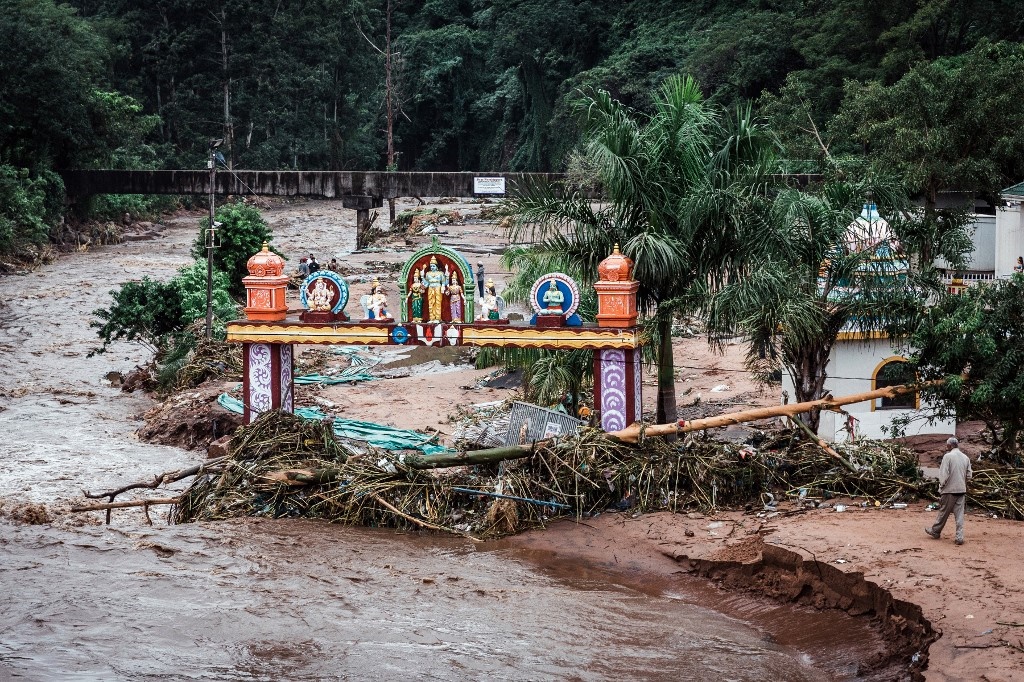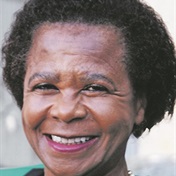
Our response to climate change should be framed as a unifying clarion call to action transcending short-term party political power plays and point scoring, writes Mamphela Ramphele.
The tragic loss of life over the last week is a wake-up call about the devastating consequences of global warming and climate change.
South Africa should have been better prepared to anticipate and mitigate the impact of the floods that destroyed settlements and cruelly cut short lives of the poorest and most vulnerable.
Our science and technology research community and technical experts in academia and think tanks, have all the knowledge, technology and experience in climate change measures, weather forecasts and even measurement of the rises and falls of sea levels.
What is missing is collaboration between public servants and leaders and this rich base of competence to anticipate, mitigate and respond timeously to impending disaster.
READ: A sea of support for Durban beach clean-up
Our government has wisely signed the UN Panel on Climate Change Paris Agreement in 2016, alongside more than160 other countries. We should be proud of the submitted comprehensive plan – Intended National Determined Contributions (INDCs) – that details the steps we are to take to help keep global warming below 2°C.
Our country and government has however failed to translate this laudable INDCs document into a national strategy. Had we mainstreamed these intended actions into every sector of society as part of an integrated policy response to the serious consequences of irreversible climate change, we could have saved lives.
Studies by Standford University researchers show that South Africa is 10% to 20% poorer than we would have been without the 1°C increase in temperature due to global warming. Over the long-term urgent climate change actions are likely to not only stimulate the economy but protect existing investments.
A recent survey of manifestos of political parties contesting the coming national and provincial elections by Project 2030, a coalition of environmental and social justice activist groups, found that none of them has a comprehensive implementable policy offering that is mainstreamed into socio-economic development plans. Many of the manifestos are contradictory in calling for more fossil fuel security in oil and gas, whilst purporting to support the reduction in carbon emissions.
Our response to climate change should be framed as a unifying clarion call to action transcending short-term party political power plays and point scoring. We need to set a national vision of the society that is committed to harnessing our rich heritage of Ubuntu as the cradle of humanity where humans lived in harmony with one another and with nature.
Embracing Ubuntu would expand the horizon of care beyond the individual to other human beings, including those yet to be born. Ubuntu also calls for care of the environment as mother nature that nurtures those who care for her and all of life in its full expression.
Our society has to rethink its national development approaches. Poverty and inequality not only threaten the sustainability of society but are incompatible with a culture of care for all humanity and living things. Poverty and inequality are expensive not just for poor people, but for all of society. The money spent on multiple disaster management responses is money not available for proactive investment in a better quality of life for all.
We need to harness the crisis of climate change as an accelerator of a just transition to a different way of promoting socio-economic development: infrastructure, human settlements, energy, water and sanitation and education and training. We need national discussions, including in our education and workplaces, about the reality of climate change and what we need to do to protect ourselves and to promote prosperity for all in this new normal of global warming.
We stand to benefit from strategic integrated responses to climate change to kick start our moribund economy by mobilising all citizens to create an ecologically sound society. Public sector leaders and officials need to be more open to working with private sector leaders, as well as civil society in urban and rural communities to create a safer ecosystem for our children and their children. Collaboration is the only way to leverage our diverse strengths to prepare for a more resilient future in which we do things differently.
We need to learn from countries that live with earthquakes who have developed resilient architecture to withstand the risks of tremors. We have to agree to create more robust norms and standards of infrastructure development and human settlements that can withstand the ravages of droughts and floods. We have the expertise to advise us on appropriate designs and urban planning for more compact cities and towns to minimise long commutes and reduce carbon emissions.
Massive infrastructure development programs would not only absorb the millions of unemployed people, but would create opportunities for on the job training, including permanent jobs of maintenance workers to ensure that we establish a culture of planned maintenance to protect our existing and future investments.
We need to radically move away from the discredited housing model of RDP houses that are characterised by poor quality and fragility, that are trapping poor people in perpetual poverty. Poor people need the dignity of being able to participate in building their own homes, as many have done over generations, and continue to do in rural areas.
Serviced sites with appropriate supervision and support with subsidised materials should replace the dependency that has taken away people's dignity of self-reliance. The rule of law needs to be enforced to minimise risks of inappropriate structures built in unsafe areas in the name of shelter.
Global warming and climate change are part of the new normal of human civilisation. Our responsibility as a nation is to harness our considerable natural resources of sun, wind and the oceans to create an ecologically sound energy system and physical infrastructure to create shared prosperity.
We owe it to our children's children to elect those leaders who can become effective champions of an ecologically sound and prosperous South Africa.
- Mamphela Ramphele is co-founder of ReimagineSA.
Disclaimer: News24 encourages freedom of speech and the expression of diverse views. The views of columnists published on News24 are therefore their own and do not necessarily represent the views of News24.




 Publications
Publications
 Partners
Partners























